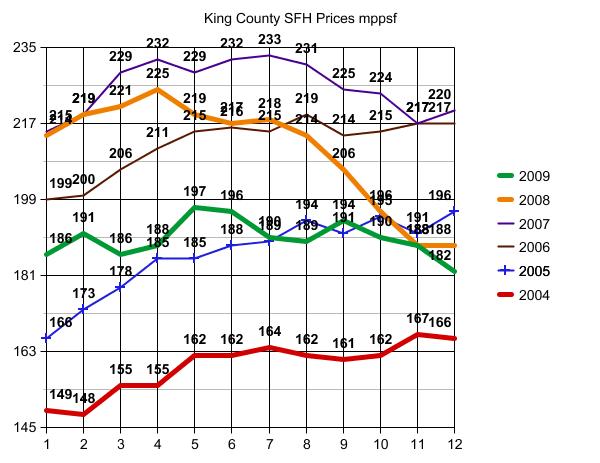Loan Home Inc. is a lead generation company telling consumers that they can be paid for the referral of their own transaction, or the transaction of friends and families.
Before we tease apart why consumers should avoid this obvious scam, let’s briefly review what mortgage lead generation companies do. Loan originators obtain clients from many sources. Some have built up a strong client base over the years, others make sales calls on Realtors asking for client referrals, others work at a bank and possible customers walk into their branch on a regular basis. Not all LOs like working with Realtors because they demand high quality service, and not all LOs have a client base. Some LOs work for companies that advertise on the radio. TILA Mortgage, Paramount Equity, American Equity, and Best Mortgage are some of the companies that advertise on KIRO 97.3 FM in the greater Seattle area. Radio advertising is expensive but it works. The phones ring at specific times and the LOs are there to pick up the phone but since the firm is paying for the radio ads, the LOs will typically split the fee income with their firm as they should.
Lead generation companies troll the Internet for consumer leads, use banner ad campaigns, and/or send out mortgage email spam and then sell these possible homebuyer or refinancing homeowner leads to loan originators who pay a fee to receive that person’s contact information.
I receive all kinds of emails from lead gen companies every week trying to sell me leads (I do not originate loans.) Recently I’ve been responding to the emails and asking if the salesperson can send me samples of the advertising material used to procure the leads. I’ll bet you’re not surprised to hear that NOT ONE COMPANY has replied to my request. Why? Because lead generation firms blatantly violate state and federal lending laws in their advertising. Loan originators typically won’t talk about lead gen tactics because they might already be addicted to the crack that is also known as mortgage leads and they don’t want to turn in their crack dealer.
Clamping down on lead generation firm advertising is not my personal top priority but it should be a priority of any loan originator who wants to advertise legally. The more the industry continues to buy leads procured by using deceptive advertising, the more the industry is unable to get their own phones to ring by advertising legally.
This new scam is quite clever: Loan Home Inc. says anyone can “sign up” their own self(!) for this program and when they decide to buy or refinance, Loan Home Inc., will connect them with a “reputable, ethical” mortgage broker or mortgage loan originator and the consumer will be able to get money back (sounds awesome!) after closing. Whoo hoo! Sign me up! The consumer can also sign up friends and family and get money back when they buy or refinance, too! What could possibly be wrong with this cool-sounding idea?
Well consumers, what’s going to happen is that your name and your friends/family names will be SOLD to mortgage brokers and loan originators who have no clients or who are willing to pay money to Loan Home Inc., for the ability to earn money off your deal. That’s right, you are an object to be bought and sold to the highest bidder.
Realize that whoever Loan Home Inc., sells your contact information to, is going to have to pay Loan Home Inc. a fee and that fee will be much higher than the money you are going to “get back” from Loan Home Inc. because LHI is going to keep a percentage of that fee to cover its costs as well as to make itself a nice profit. Next, whoever has purchased your lead is going to increase the fee you pay BY THAT AMOUNT OF MONEY IF NOT MORE.
In the LHI example, on a $250,000 home loan, consumers are paid $800 for their own home loan lead. If so, then the person who purchased your lead will simply increase the fees consumers pay by……$800. Since the majority of people do not come in with cash at closing on a refinance, consumers will be financing that same $800 over the term of the loan; not necessarily a good financial decision. Another way for the lender funding the loan to earn back the money they have to pay LHI and you is to sell you a loan with a higher interest rate. Worst case, the consumer will pay higher fees as well as a higher rate just for the ability to get back $800 on a $250,000 loan.
LHI also sets up a nice-sounding multi-level marketing plan in their powerpoint slideshow.
I wonder if they hired an attorney who understands Section 8 of RESPA to review their business plan?
Section 8 of RESPA prohibits anyone from giving or accepting a fee, kickback or anything of value in exchange for referrals of settlement service business involving a federally related mortgage loan. In addition, RESPA prohibits fee splitting and receiving unearned fees for services not actually performed.
Violations of Section 8’s anti-kickback, referral fees and unearned fees provisions of RESPA are subject to criminal and civil penalties. In a criminal case a person who violates Section 8 may be fined up to $10,000 and imprisoned up to one year. In a private law suit a person who violates Section 8 may be liable to the person charged for the settlement service an amount equal to three times the amount of the charge paid for the service.
It doesn’t sound like the company owners have a background in mortgage lending.
From their FAQ page:
Q: Will there be additional fees added to my loan?
A: No. The lead generation compensation that Loan Home pays does not constitute an added cost to the loan or the loan process. By paying you, we are taking profits from the mortgage companies and returning them to you!
Oh boy! Let’s stick it to the mortgage companies. What a great sales tactic. I’m sure the mortgage companies love reading that. Please do not fall for this, consumers. There is no way in hell that any mortgage company is going to just give you back its profit. You ARE paying for the money Loan Home Inc., is giving back to you. It will be in the form of a higher interest rate or in the form of higher fees or likely both. There is no such thing as free money.
Please, please do not fall for this scam. Instead find a local loan originator who lives in your community. If you want to shop, then ask for a Good Faith Estimate from three or four sources on the same day: Your retail bank (where you do your checking and savings), a mortgage banker (a lender that does not offer checking and savings and specializes in mortgage lending), a mortgage broker (who can shop the market for you), or a credit union.
LHI says they are ready to do business in several states (including WA) yet I can find no business license issued to “Loan Home Inc.,” or a license under the name of either of their founders in Washington State.
Interestingly, when I read the biographies of each of their founders, the name of the web page (look up at the very, very top of the web browser) says “Linda Torres.” That’s just sloppy webmaster work but it did entice me to bing her name. Looks like there’s a Linda Torres who’s a loan originator in the Chicago area and the two other founders are from Chicago. I wonder if the leads are being funneled over to their friend Linda who appears to be one of the other founders of Loan Home Inc.



